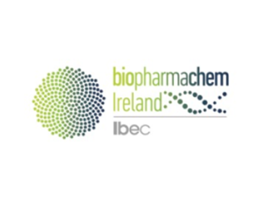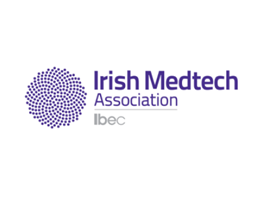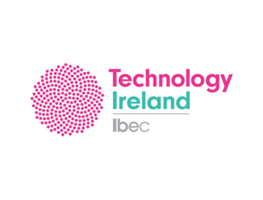Overview
Going Global from Ireland is in our DNA. Ireland is small open economy with a global outlook. We are a location of choice for FDI investment and home to worldclass startups. Our business model is underscored by substance and has helped us achieve a global footprint. We can apply this to digital health by delivering solutions across boundaries and borders. Ireland’s unique ecosystem with leading digital health, medtech, pharma, and tech companies can make us a global digital health powerhouse.
See more case studies by sector:
Case studies
100 Startups foster innovation that improves patient care/EIT Health Ireland-UK
Elaine Murray, Communications and Public Affairs Lead, EIT Health Ireland-UK
EIT Health, a part of EIT (European Institute of Innovation and Technology) is one of the largest health innovation networks in Europe made up of over 130 EIT Health partners. It aims to promote innovation and entrepreneurship in the healthcare industry, with a view to ultimately contribute to the affordability and sustainability of healthcare.
EIT Health Ireland-UK is a regional hub, part of EIT Health, which fosters a collaborative network that connects leading healthcare innovators, academic institutions, and industry partners from Ireland and the UK into Europe. EIT Health is playing a key role in driving healthcare innovation and entrepreneurship in Europe. And a regional base in Ireland has made it well-positioned to be a leading force in the healthcare industry for years to come.
Help patients in Europe with multimorbidity/Trinity College Dublin
Dr John Dinsmore, Associate Professor of Digital Health and Integrative Care, Trinity College Dublin
The SEURO project was recently launched by the Trinity Centre for Practice and Healthcare Innovation to empower Europe’s 50 million multimorbid patients with digital health interventions for greater self-management. Having received €3.99 million in funding under the Horizon 2020 Research and Innovation Programme, the SEURO project will also explore the potential for scaling up the ProACT platform across Europe. ProACT works by providing a digital application with suite of sensor-based devices, tailored to each individual’s unique disease profile, in order to collect relevant data from them.
John gives credit to the Irish digital health ecosystem for creating an environment where they could develop this project and the platform. “There is the academic side that can help organisations, and a strong digital health, and medtech sector with a lot of great, innovative companies. We are in close proximity to so many academic, industry, and SME partners that provide a rich environment for progressive collaboration. We are also able to access research funding opportunities in Europe, such as the Horizon 2020 programme and learn from new EU initiatives…”
Innovation through collaboration / Tyndall National Institute
Dr Paul Galvin, Head of the ICT for Health Programmes and Head of the Life Sciences Interface Group at the Tyndall National Institute
Tyndall, Ireland’s largest Research and Technology Organisation (RTO), specialises in micro-nano-electronics, photonics and smart systems. “We are one of Ireland’s six national labs that carries out research in both fundamental and applied research,” says Paul Galvin. We focus on four pillars around an ‘ABCD ecosystem’, that combines academic, business and clinical stakeholders, as well as experts in design thinking.”
“We always want to ensure that we have the globally leading research capabilities and expertise to deliver solutions needed, to support the ecosystem, and our industry partners. This ensures that we can attract investments for next generation digital health tech research and innovation and support new product development.”
Creating the right solutions/S3 Connected Health
Jim O’Donoghue, President of S3 Connected Health, and Chair of the Ibec Digital Health Working Group
“The Covid-19 crisis has underlined the importance of embracing digital solutions to improve patient outcomes and facilitate more efficient care.” The company partners with pharma companies to develop digital therapeutics and digital therapy management solutions for patients and clinicians in areas including neurology, immunology, respiratory, and cardiology. “For example, we partnered with Biogen to develop a digital solution for a disease, which allows clinical teams to assess, monitor and track the disease progression… We also developed a digital solution for the management of Multiple Sclerosis (MS) with leading pharmaceutical company Merck… [and with] leading health technology company Philips, we developed a wearable device for the treatment of positional sleep apnoea.”
How apps help deliver care at home/BlueBridge Technologies
Garret Coady, CEO, BlueBridge Technologies
“We have a particular niche speciality in blending technology developments with the regulatory requirements needed in the connected health space,” says Garret. “There are three Ps of why using software can improve healthcare: Precision – with better technology, better diagnostics, and better therapeutics, there is more accurate diagnostics or more precise treatment. Prevention – using technology to diagnose the condition before it progresses into something that requires expensive hospital care; and Personalisation – with a data set specific to the individual, particular health care can be tailored for a patient. This way, you get less of a one-size-fits-all type health care approach, so you make things more efficient and targeted.”
BlueBridge Technologies has partnered with companies such as Medtronic, Boston Scientific, Novartis, Cook Medical, Roche and West Pharma, to name a few. Companies outsource their research, development, and engineering to BlueBridge to create technologies for them.



